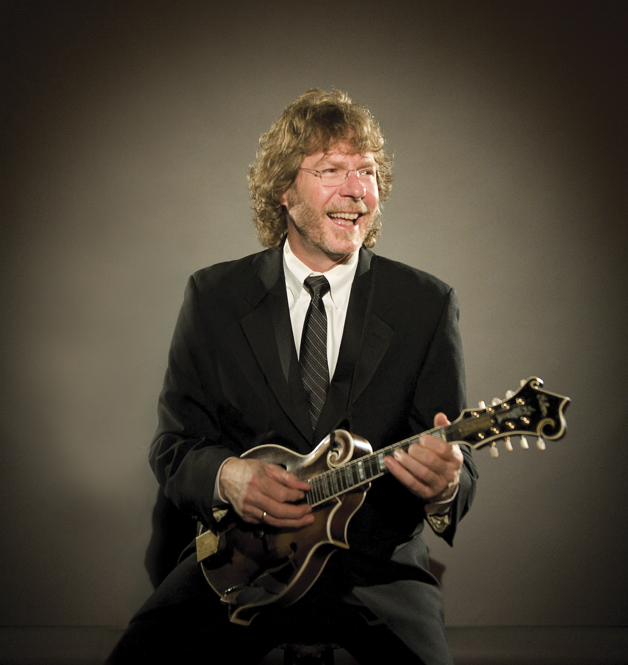Interview: New Grass Revival Founder Sam Bush on Interacting with Other Musicians and the Art of Jamming

“I’m just now starting to get somewhere.”
That’s Sam Bush in reference to his seventh solo album, Circles Around Me. With so much history — co-founder of the New Grass Revival, in-demand studio and live musician, fiddle champion, Grammy winner and much more — was he really only feeling that way within the past few years?
“I tend to rejuvenate every so often,” he says. “I do different projects and move in different circles. I started out in high school playing my mandolin and being progressive that way, and I do feel comfortable as a singer and player, sure.”
GUITAR WORLD: You’ve been making music pretty much your entire life. What has changed and what has stayed same?
Hopefully, the writing is getting better. It’s hard to know, but it’s interesting to me that some people say the last one I made is the most bluegrass I’ve done, and some say it might be the most progressive. I’ve dabbled in reggae, rock and roll, South African, jazz, rock, I played with Jean-Luc Ponty on a record. If anything has helped my growth, it’s playing with my band. We gel together so well and we can now make a sound together that’s very comfortable as players onstage.
Do you still have to woodshed or are the gigs enough?
I do 80 or so shows a year, I play on sessions, but I never feel like I’m playing enough. I always like to play more. I play mandolin and sometimes practice guitar, and if I’m singing, I play guitar. I tend to work on finger exercises and callous-building with the mandolin to keep my hands ready to play.
All the latest guitar news, interviews, lessons, reviews, deals and more, direct to your inbox!
With such a wealth of material, how do you select your set list?
I have a bank of tunes for different situations. There’s a circle of excitement between a band and an audience, and it’s up to us to start it. If we get a good connection going with the audience, they feel that too.
Have musicians lost the great art of jamming?
It still goes on, especially in this genre. Plus, when the time allotment is there, I like to end my set by getting a cluster jam onstage and getting all the musicians onstage. So really, in the acoustic world I’m in, we jam and have fun with different groups. If you pay attention, there’s something you can learn from every musician you hear, even if only a couple of licks appeal to you. When you play in different musical situations, you can only improve. It’s up to you whether you incorporate what you learn or not. The interaction with other musicians keeps things fresh.
Is there is a tendency within the industry to underestimate the tastes of the general public?
I keep aware of the fact that I need an audience with open ears. I played at the Ozarks for a very young audience and they are not concerned if it’s bluegrass or what it is. We play a good variety of music within one show, so really, I tend to give the audience a lot of credit that they are educated in a lot of different styles of music. Either it feels good to you and the audience or it does not. I have a bank of tunes, and in certain situations there’s a circle of excitement, but it’s up to us to start it. If we get a good connection going with the audience, they feel that too.
But sometimes it takes a whole different audience for music to get recognized. Bluegrass and acoustic music — it was not lost on me that a film comes along like O Brother, Where Art Thou and uses that music and makes it part of the story. Bonnie and Clyde used music by Flatt and Scruggs. Deliverance had “Dueling Banjos,” and that song was on the radar on rock and roll radio stations. Audiences like hearing the sounds when they can get exposed to them.
You credit your band as key to your musical growth. Your name is out front, but clearly they’re integral to your sound.
They are the most important part of my sound. A band is the exciting part of playing live. I have no interest in playing by myself. The joy of music is the interaction with other musicians. I play rhythm when they take solos. We’re together; they’re not a backup band. I think it starts with trusting each other musically. I respect them totally.
We all want to get up there and do our best. Some days are better than others, but I’m proud that everybody always puts their best foot forward. We urge each other on. When one of us plays a phrase they hadn’t played before, or you notice how well someone is playing, it’s joyful and it makes you want to join in.
Read more of Sam Bush’s interview right here.
— Alison RichterAlison Richter interviews artists, producers, engineers and other music industry professionals for print and online publications. Read more of her interviews right here.
Alison Richter is a seasoned journalist who interviews musicians, producers, engineers, and other industry professionals, and covers mental health issues for GuitarWorld.com. Writing credits include a wide range of publications, including GuitarWorld.com, MusicRadar.com, Bass Player, TNAG Connoisseur, Reverb, Music Industry News, Acoustic, Drummer, Guitar.com, Gearphoria, She Shreds, Guitar Girl, and Collectible Guitar.
